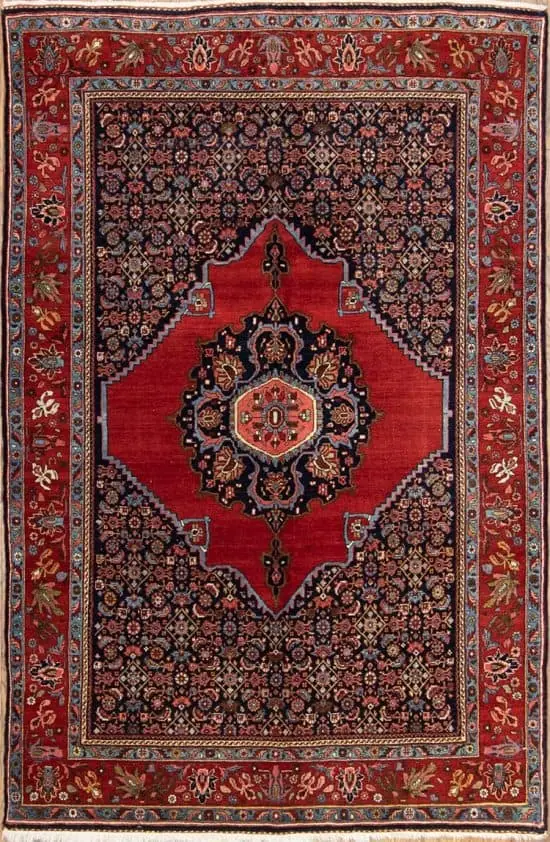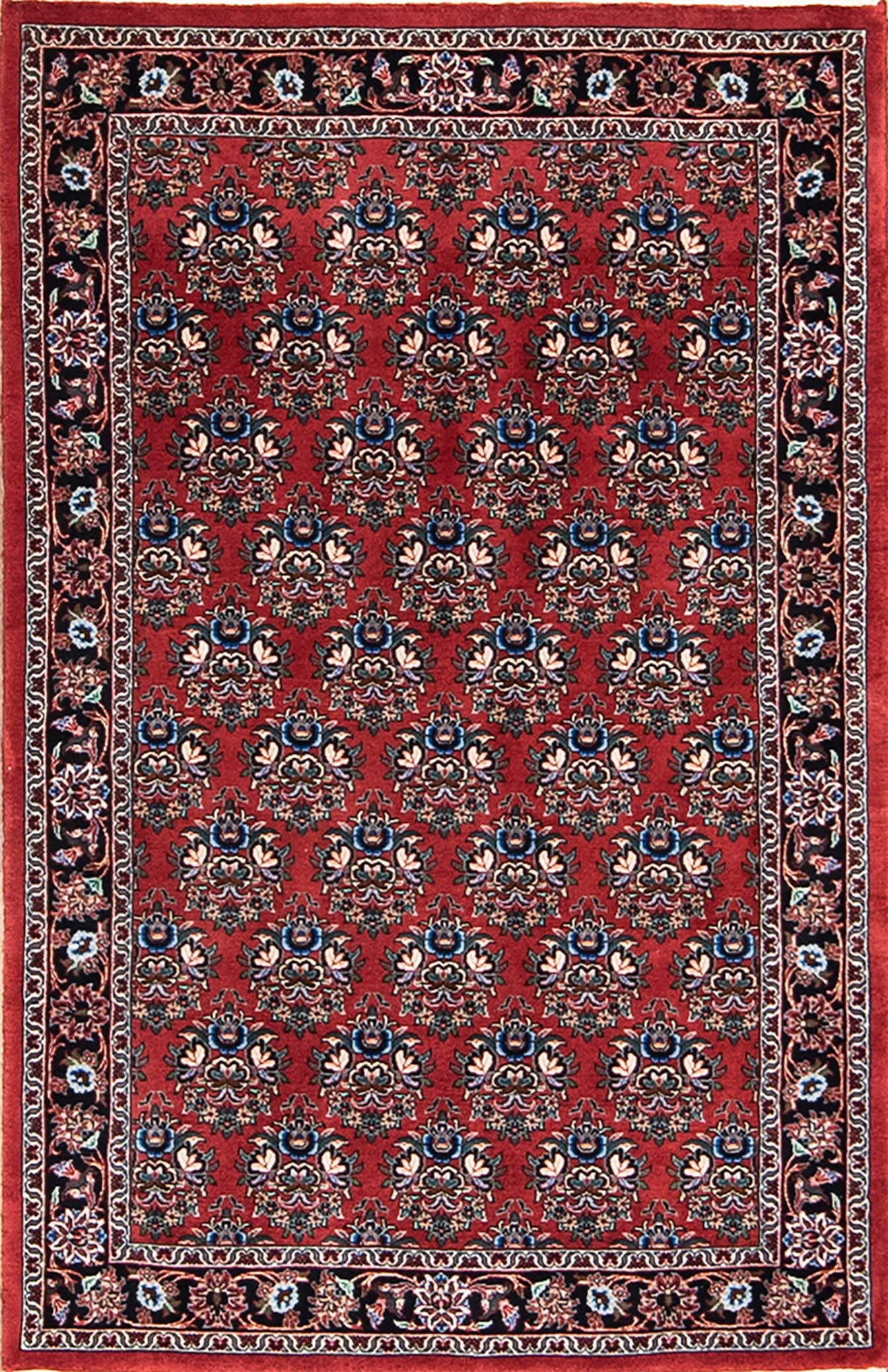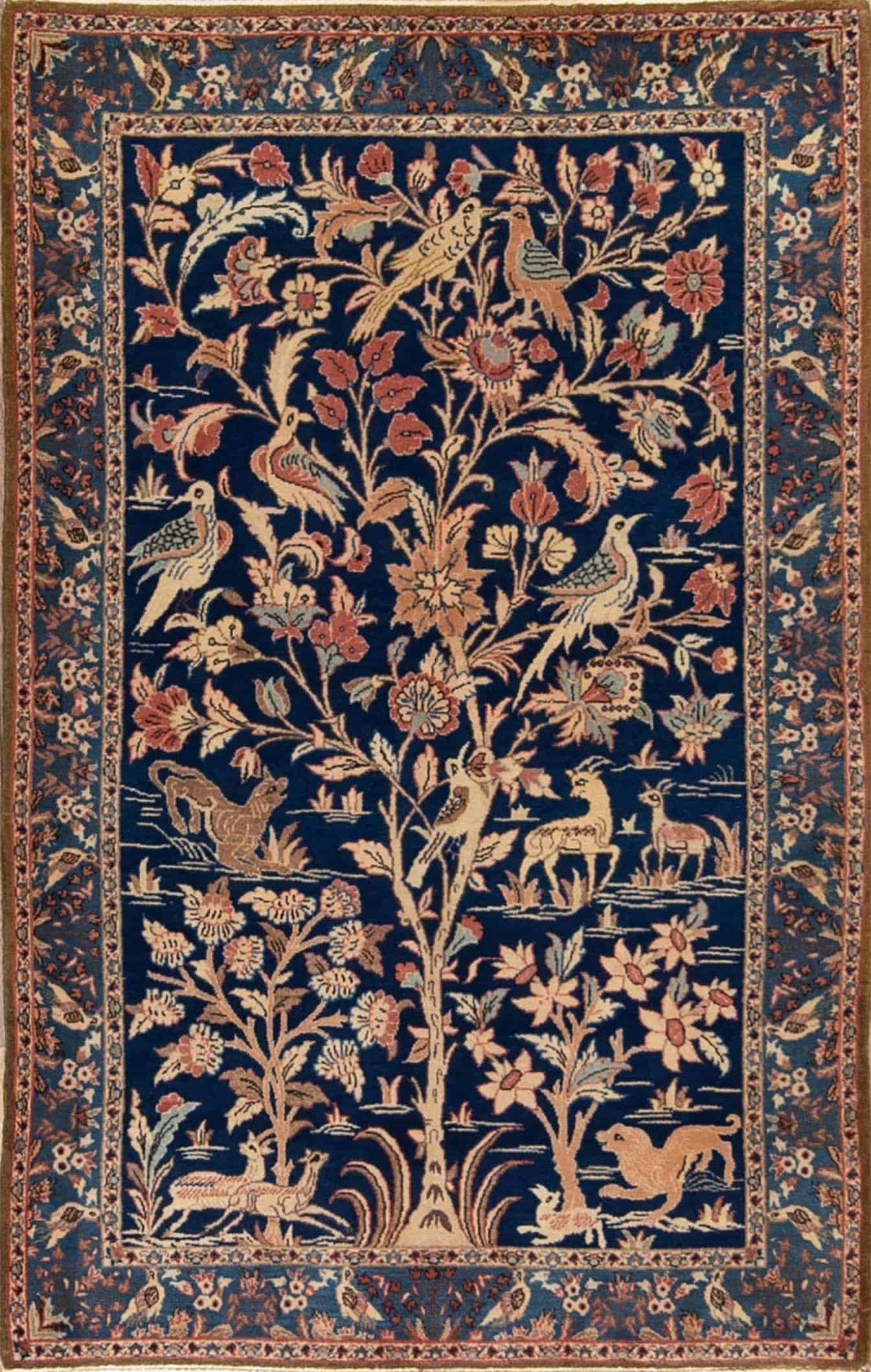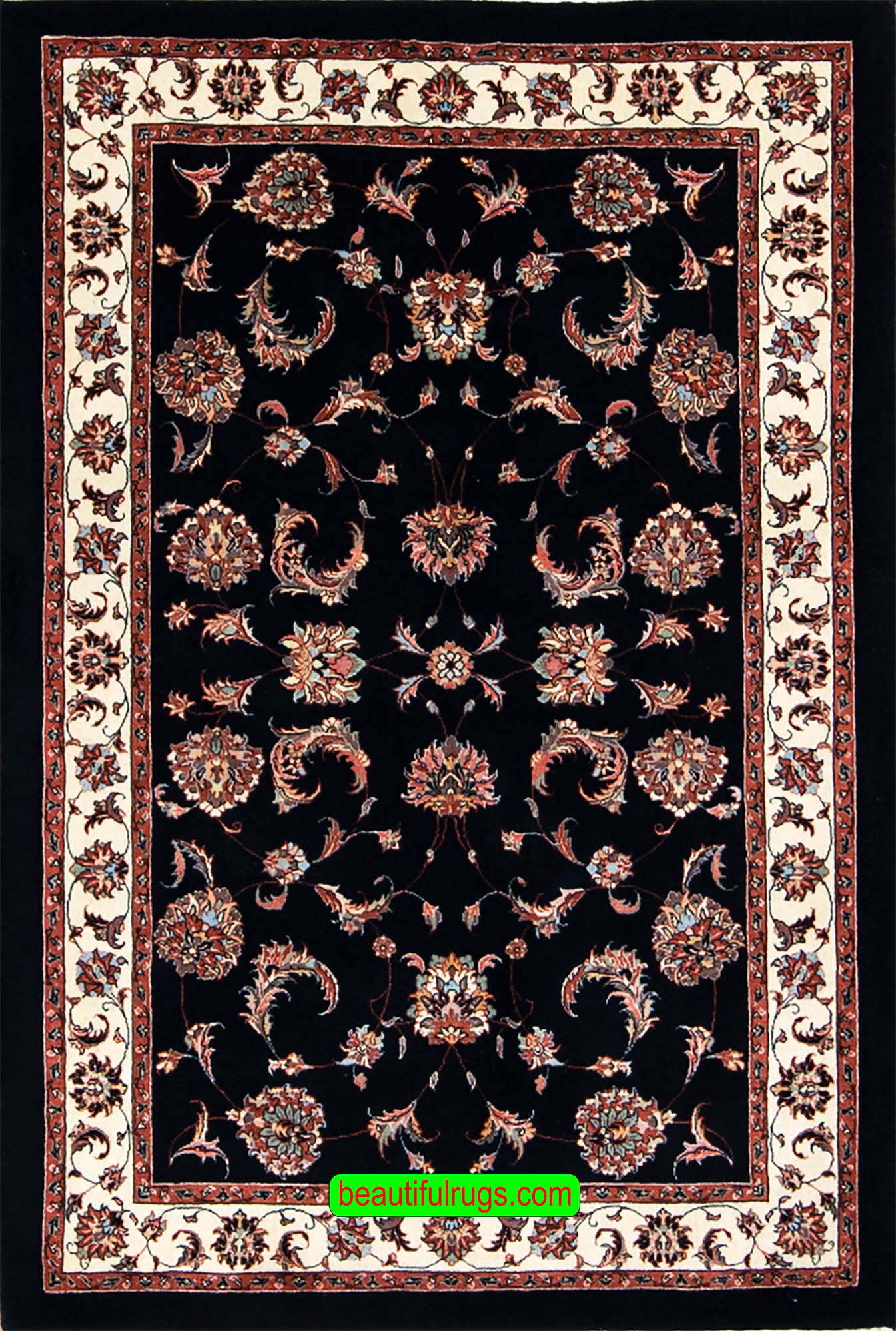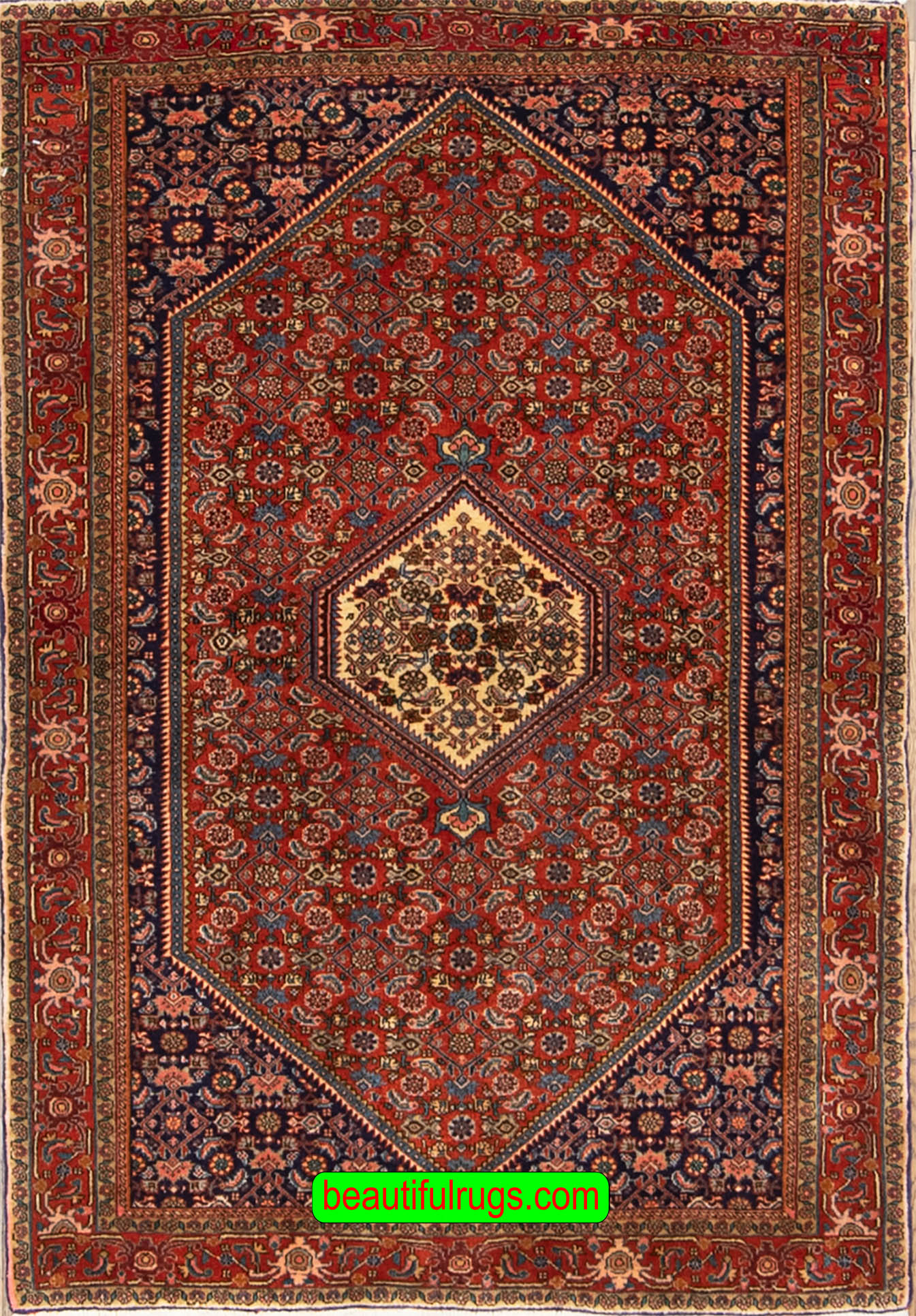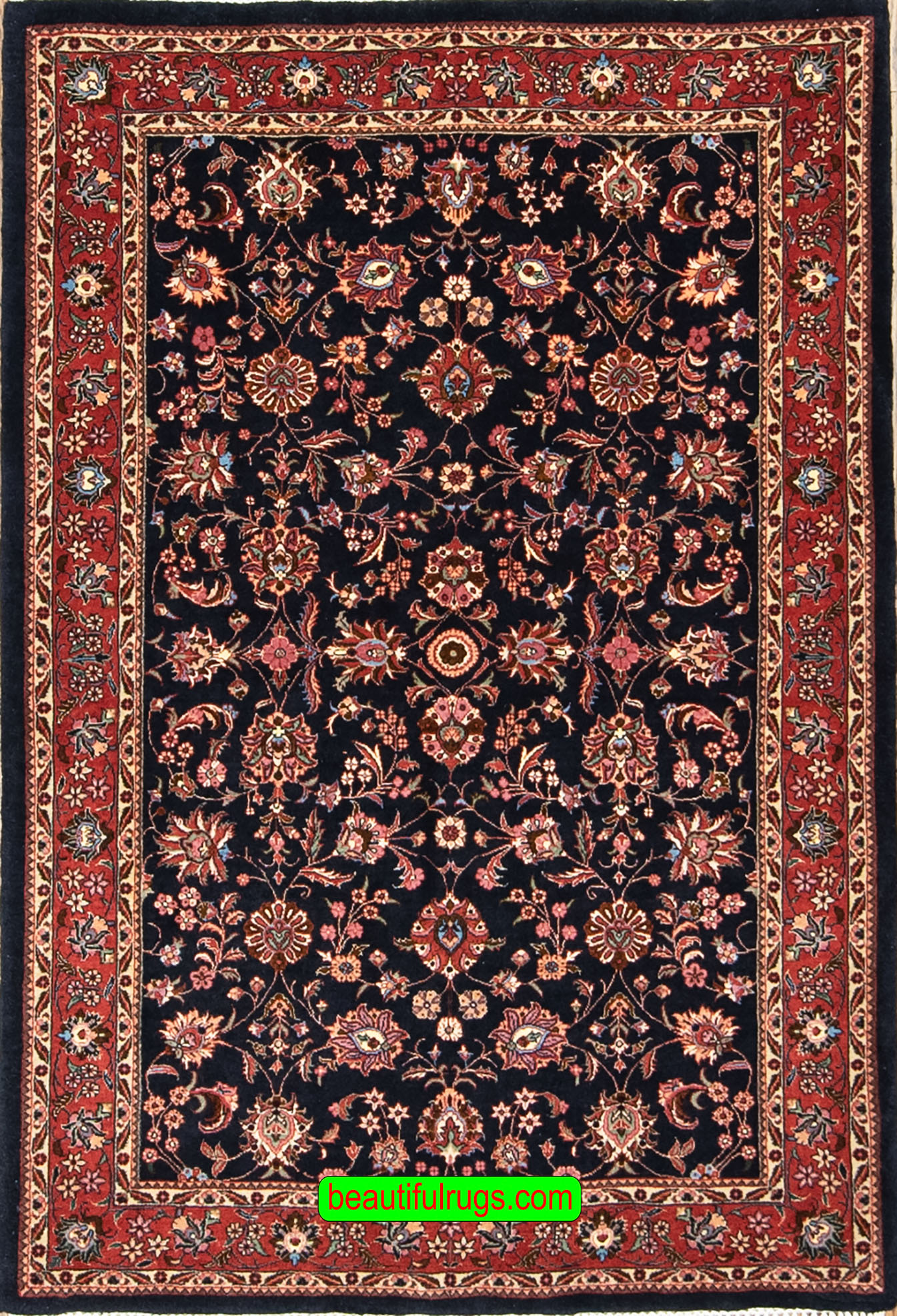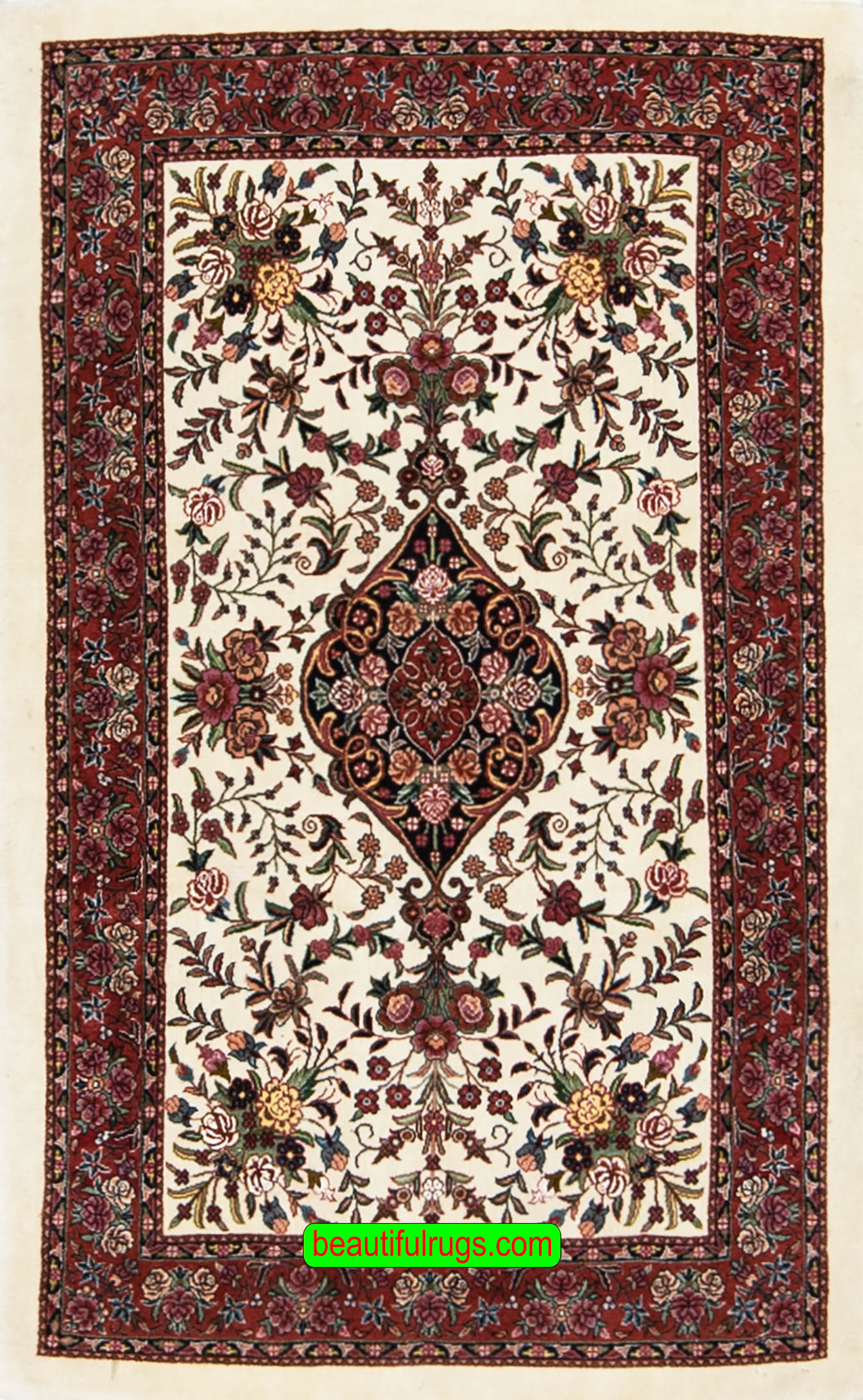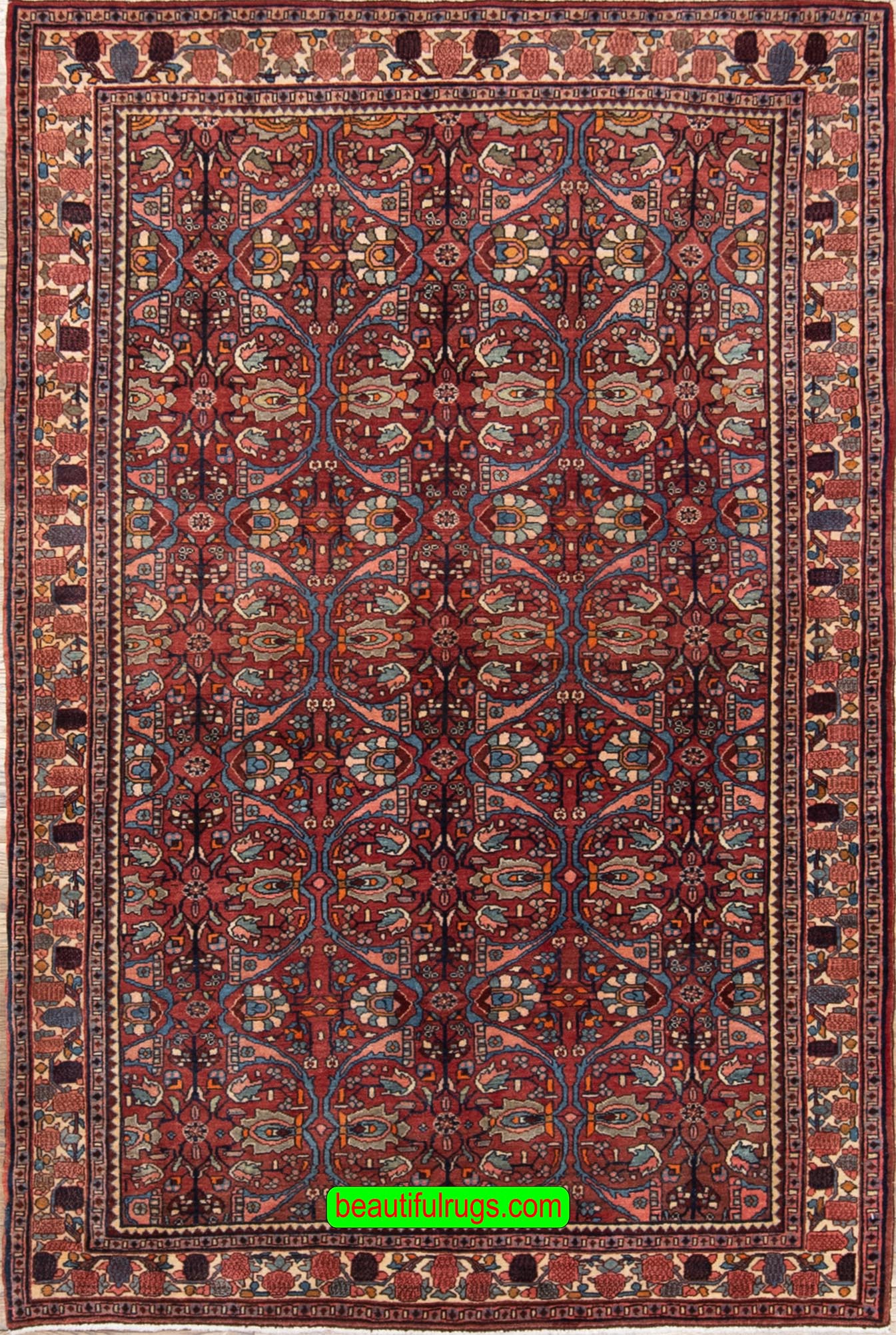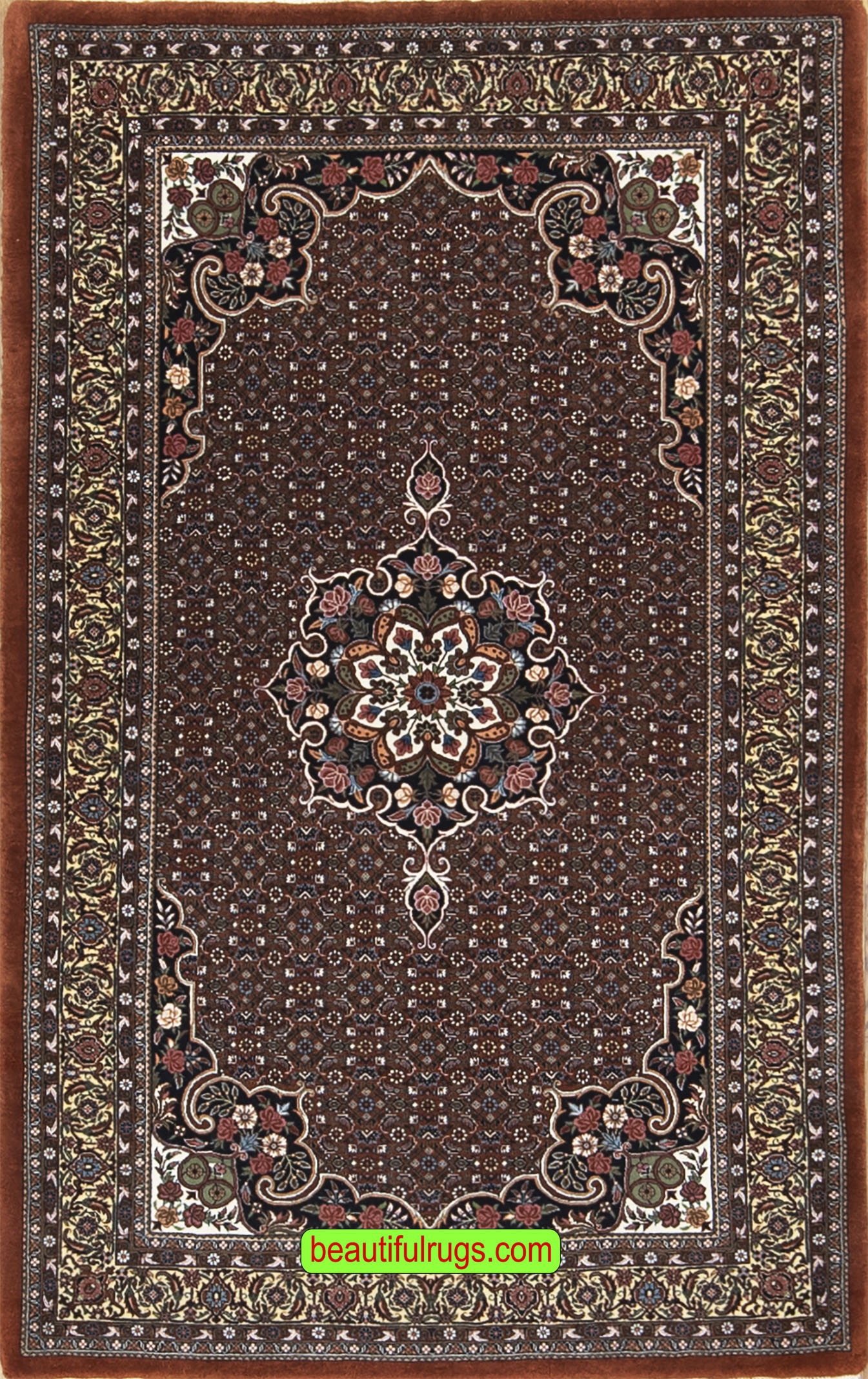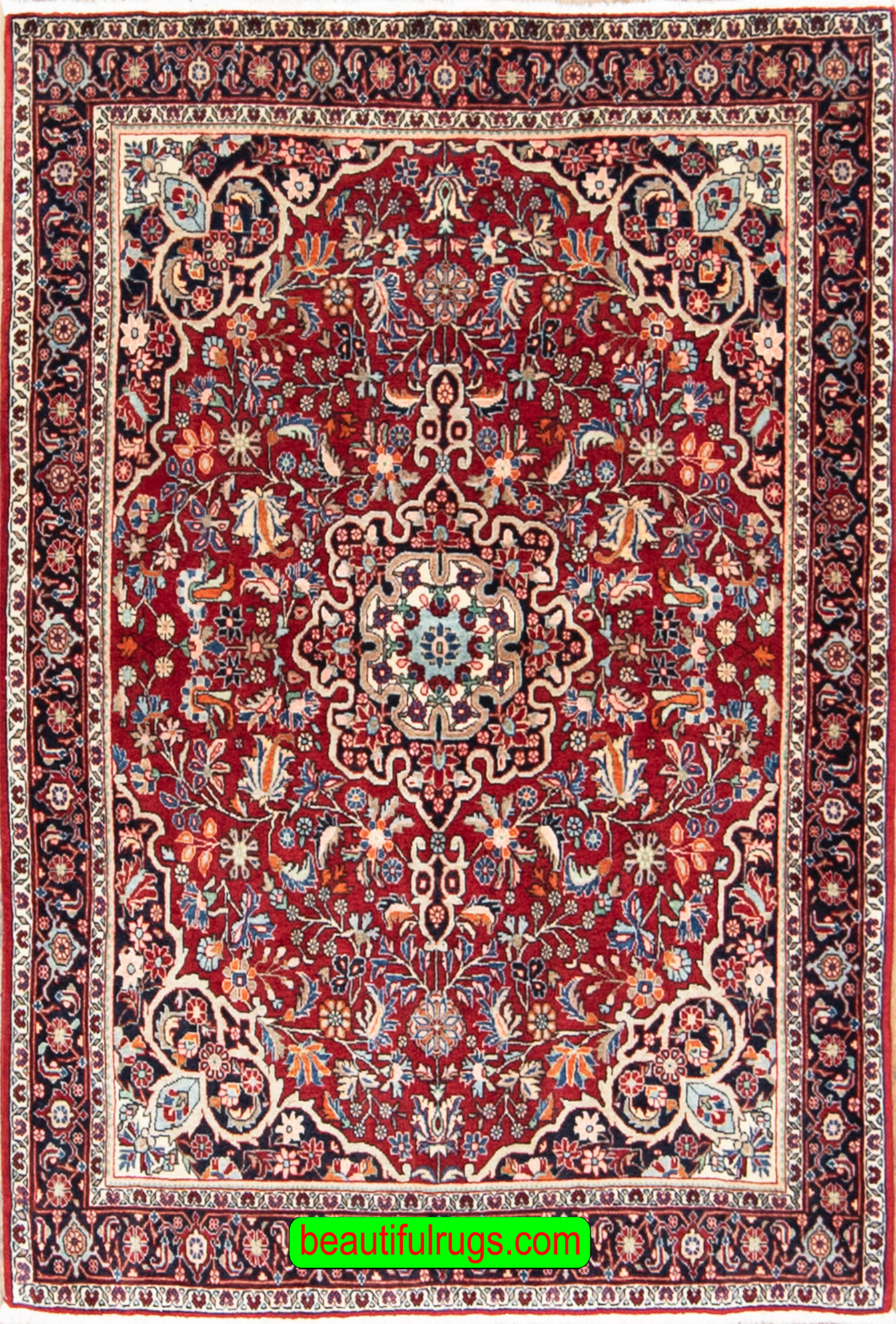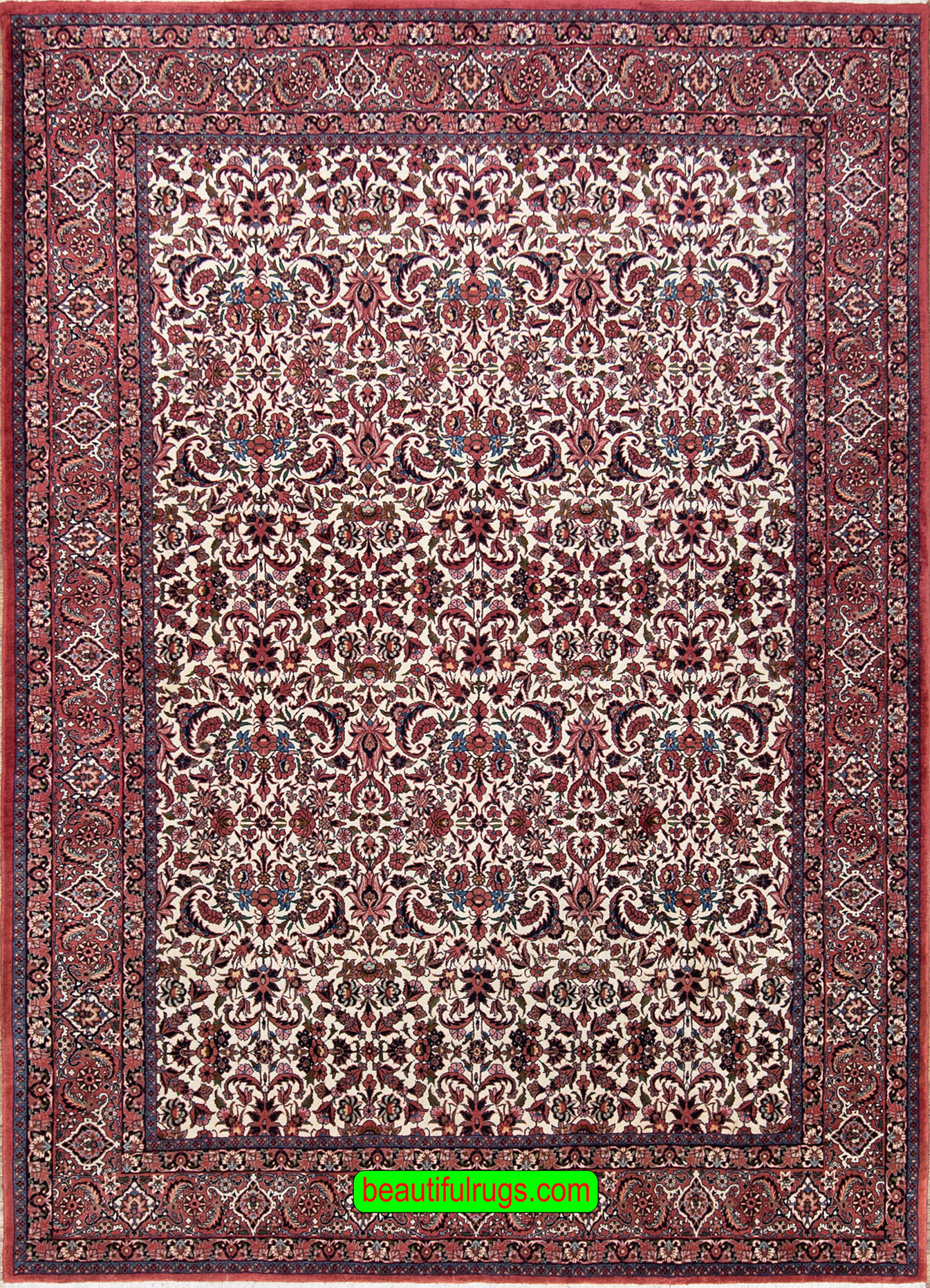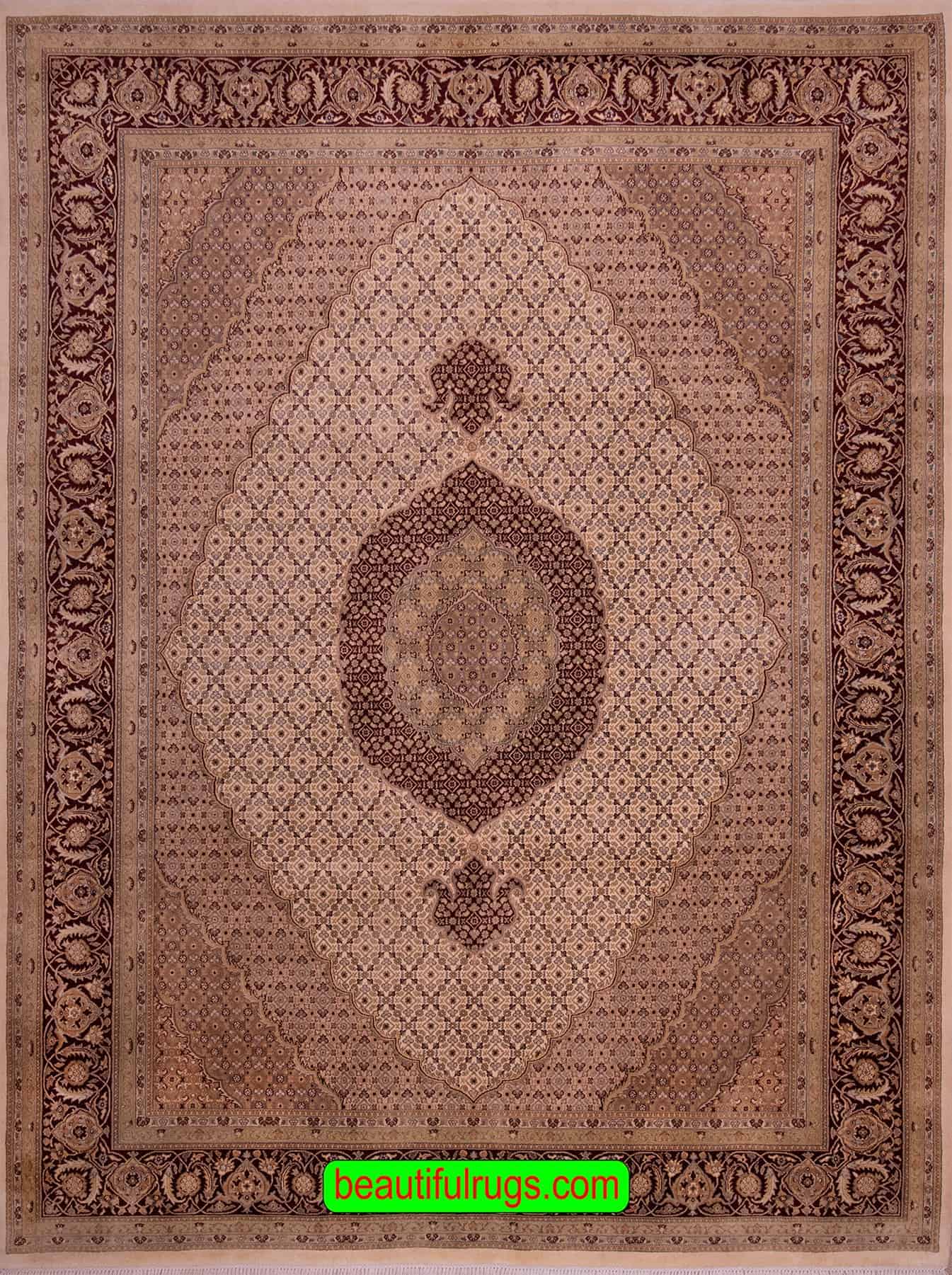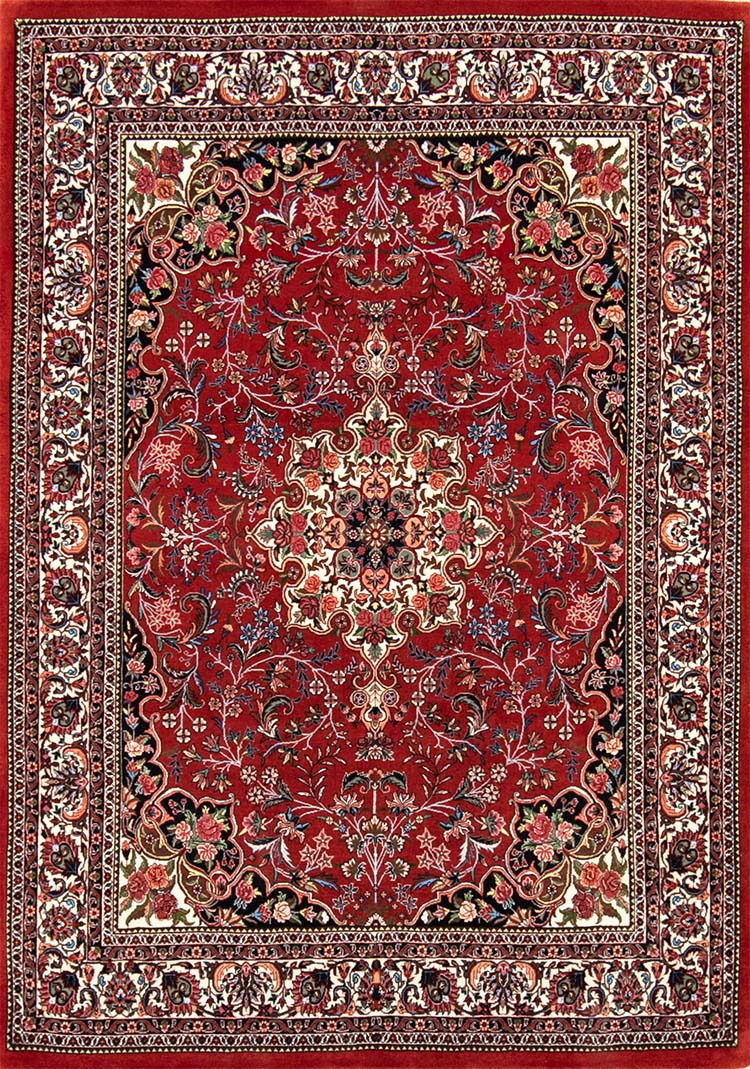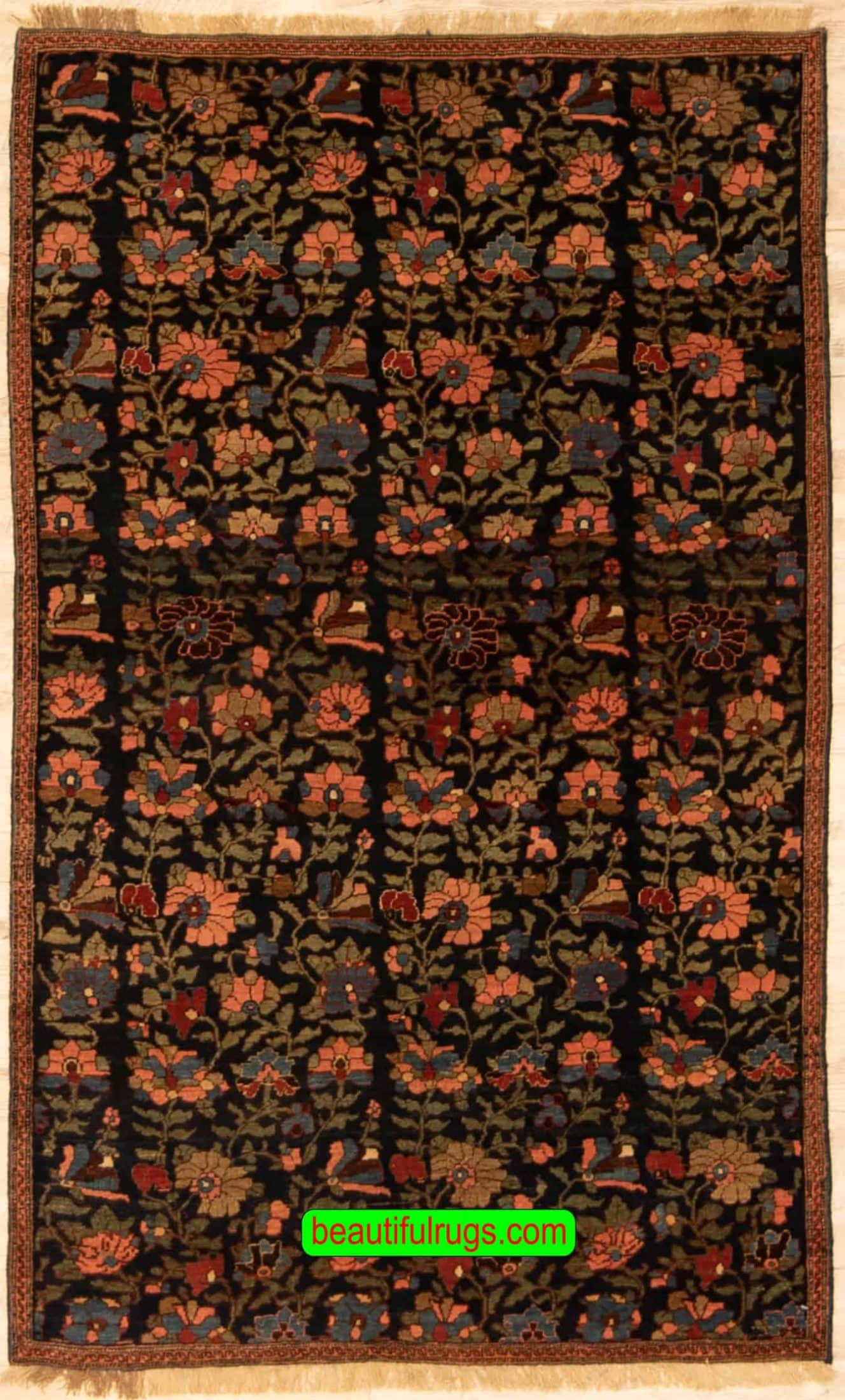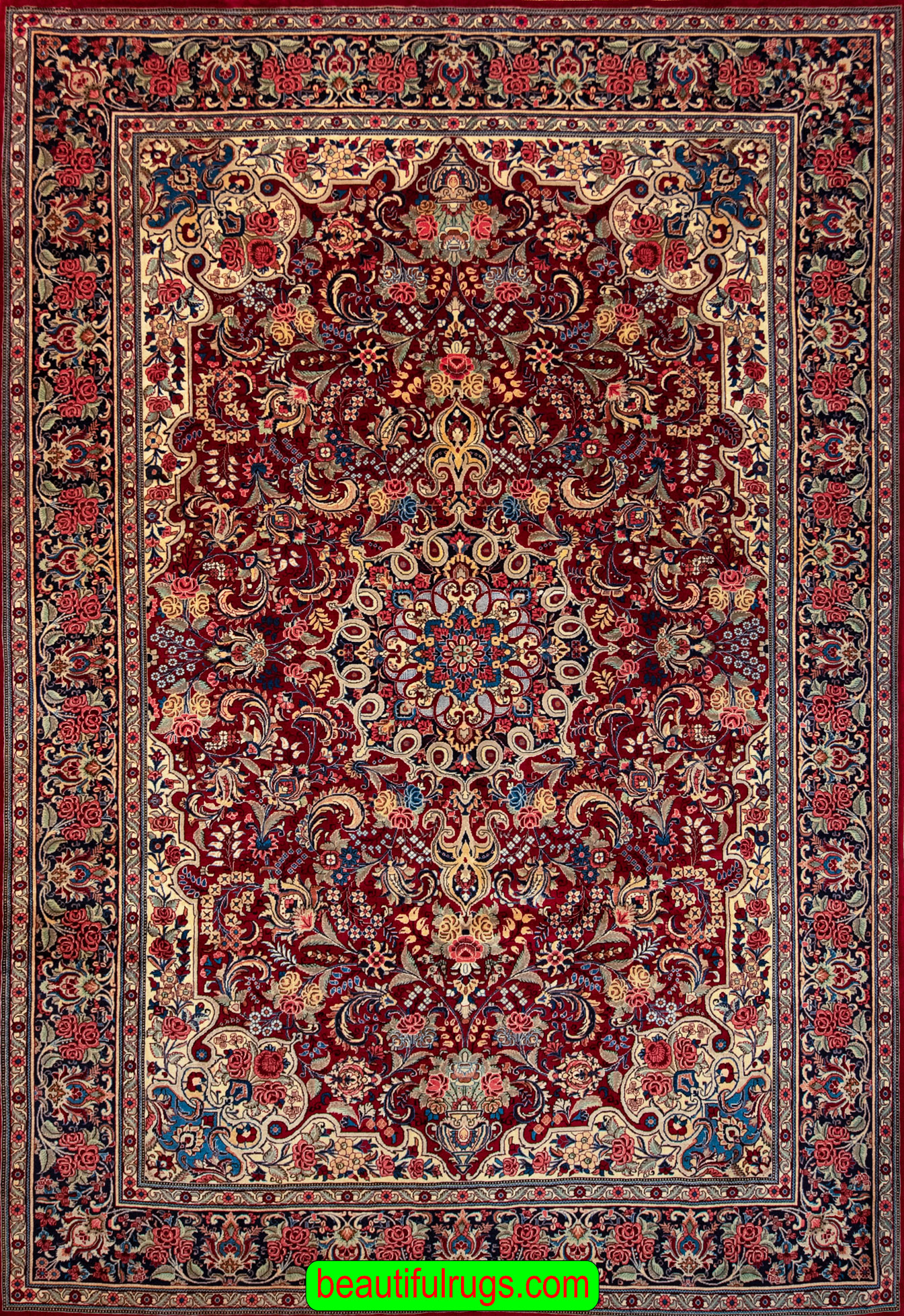Bijar Rugs, Antique Persian Bidjar Rug
Bijar, located in the northeast of Iran, in Kurdistan province, is a city and area called the Roof of Iran on account of its high elevation. This mountainous area is a historic Kurdish region, which is autonomous and where Kurdish, a Western Iranian language, is spoken.
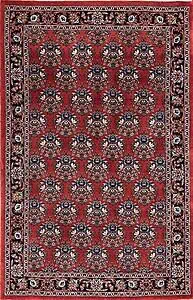
Kurds make up the majority of the population. Bijar has been famous for its rugs since the time of the first Persian (Achaemenid) Empire in the 5th century BCE. Bijar (or Bidjar) rugs are made with a “wet weaving” technique: wool is dampened as it’s woven and then beaten down with an iron tool. After the wool dries, its fabric becomes compact, which makes the rug quite strong, durable and long-lasting. In fact, as a result of this special weaving process, it has been called the Iron Rug of Iran.
The Garrus (or Gerous) design in the 19th century that features split leaf arabesques in the field and borders was common in larger Bijar rugs. (Garrus was also the former name of the Kurdish region of Bijar, and it refers to a Kurdish subtribe.) The arabesque is a design motif consisting of intertwining branches, vines, or tendrils, usually with floral references or geometric forms. The Herati design pattern with a rosette in a diamond with leaves along its four sides is also common in Bijar rugs, as our rectilinear designs, medallion and pendant medallion, a stylized tree of life and cypress designs in the early 20th century. New Bijar rugs have less elaborate designs and use synthetic dyes.
STYLES
Showing all 15 resultsSorted by latest
-
Burnt Orange Rug, Old Persian Bijar 5×7 Rug
$4,700Original price was: $4,700.$2,820Current price is: $2,820.Add to WishlistAdd to Wishlist -
Mauve Rug, 3×5 Rug, Directional Persian Bijar Rug with Bouquet
$3,500Original price was: $3,500.$2,450Current price is: $2,450.Add to WishlistAdd to Wishlist -
Vintage Rug, Blue Persian Bijar Tree of Life Wool Rug
$1,360Original price was: $1,360.$945Current price is: $945.Add to WishlistAdd to Wishlist -
Thick Rug, Hand Knotted Blue Persian Bijar Rug for Entryway
$2,728Original price was: $2,728.$1,899Current price is: $1,899.Add to WishlistAdd to Wishlist -
Add to WishlistAdd to Wishlist
-
Add to WishlistAdd to Wishlist
-
Beige Rug, Small Persian Bijar Wool and Silk Rug
$2,448Original price was: $2,448.$1,713Current price is: $1,713.Add to WishlistAdd to Wishlist -
Persian Carpet, Old Persian Bijar Carpet, Thick Wool Persian Carpets
$4,700Original price was: $4,700.$2,950Current price is: $2,950.Add to WishlistAdd to Wishlist -
Rug for Heavy Traffic Area, Thick Persian Bijar Rug with Rustic Brown Color
$5,775Original price was: $5,775.$3,753Current price is: $3,753.Add to WishlistAdd to Wishlist -
Colorful Rugs, Small Rug, Persian Red Bijar Rug
$2,500Original price was: $2,500.$1,875Current price is: $1,875.Add to WishlistAdd to Wishlist -
Add to WishlistAdd to Wishlist
-
Add to WishlistAdd to Wishlist
-
5×7 Rug, Handmade Persian Bijar Rug, Mauve and Rose Color Rug
$5,495Original price was: $5,495.$3,995Current price is: $3,995.Add to WishlistAdd to Wishlist -
Add to WishlistAdd to Wishlist
-
Add to WishlistAdd to Wishlist
